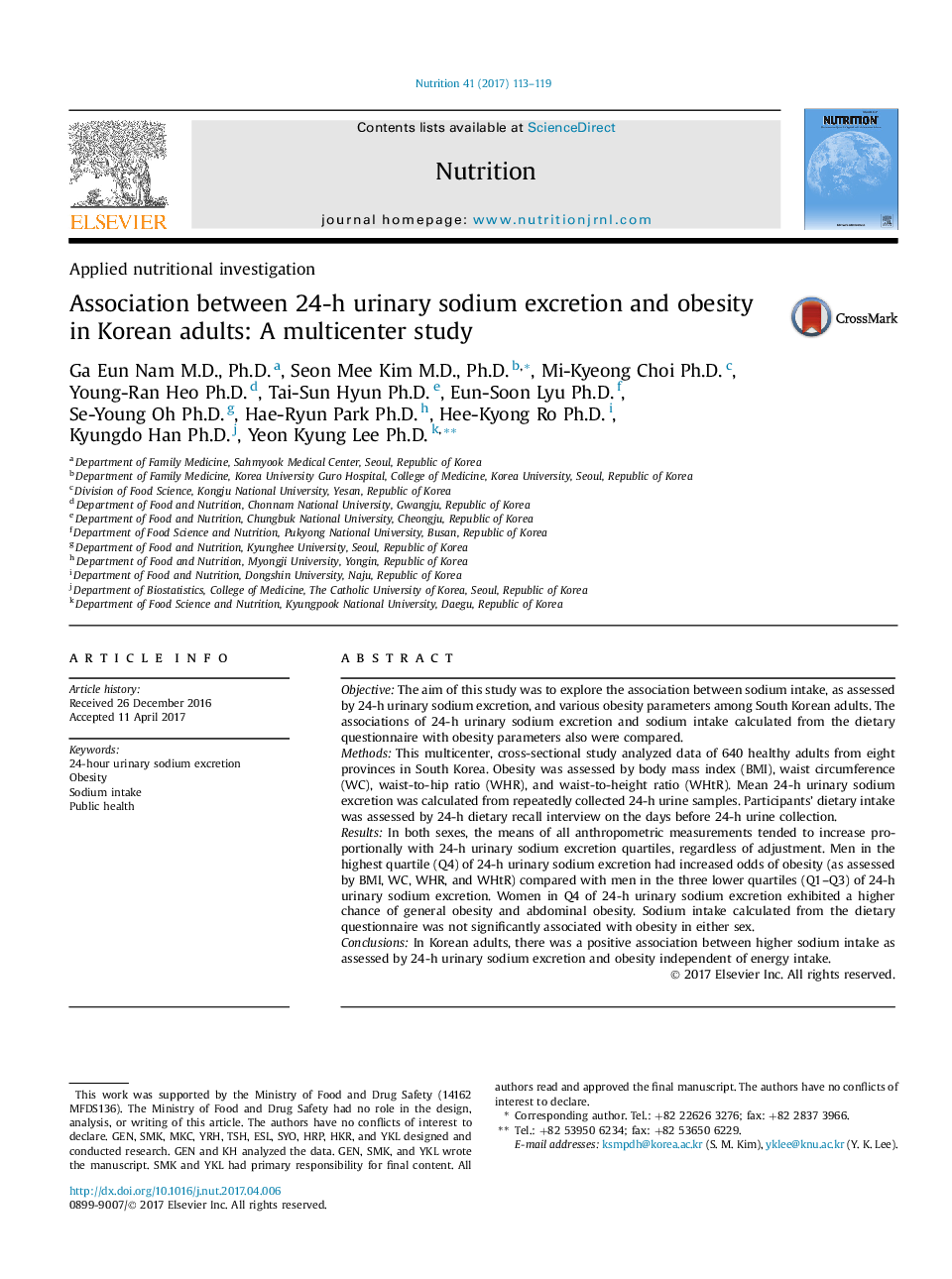| کد مقاله | کد نشریه | سال انتشار | مقاله انگلیسی | نسخه تمام متن |
|---|---|---|---|---|
| 5656844 | 1589657 | 2017 | 7 صفحه PDF | دانلود رایگان |
- A direct association between high sodium intake and obesity has been suggested.
- Previous studies investigated this association but used inaccurate methods.
- Twenty-four hour urine sodium excretion was positively associated with obesity parameters.
- This association was independent of confounding factors including energy intake.
- High sodium intake seems to be an independent predictor of obesity.
ObjectiveThe aim of this study was to explore the association between sodium intake, as assessed by 24-h urinary sodium excretion, and various obesity parameters among South Korean adults. The associations of 24-h urinary sodium excretion and sodium intake calculated from the dietary questionnaire with obesity parameters also were compared.MethodsThis multicenter, cross-sectional study analyzed data of 640 healthy adults from eight provinces in South Korea. Obesity was assessed by body mass index (BMI), waist circumference (WC), waist-to-hip ratio (WHR), and waist-to-height ratio (WHtR). Mean 24-h urinary sodium excretion was calculated from repeatedly collected 24-h urine samples. Participants' dietary intake was assessed by 24-h dietary recall interview on the days before 24-h urine collection.ResultsIn both sexes, the means of all anthropometric measurements tended to increase proportionally with 24-h urinary sodium excretion quartiles, regardless of adjustment. Men in the highest quartile (Q4) of 24-h urinary sodium excretion had increased odds of obesity (as assessed by BMI, WC, WHR, and WHtR) compared with men in the three lower quartiles (Q1-Q3) of 24-h urinary sodium excretion. Women in Q4 of 24-h urinary sodium excretion exhibited a higher chance of general obesity and abdominal obesity. Sodium intake calculated from the dietary questionnaire was not significantly associated with obesity in either sex.ConclusionsIn Korean adults, there was a positive association between higher sodium intake as assessed by 24-h urinary sodium excretion and obesity independent of energy intake.
Journal: Nutrition - Volume 41, September 2017, Pages 113-119
